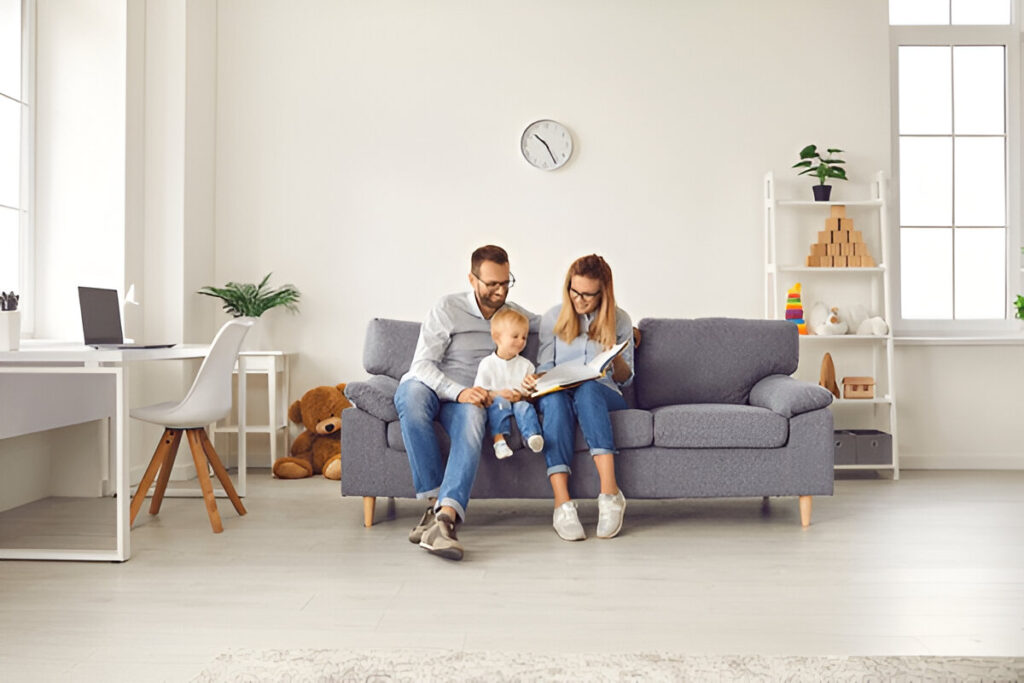Introduction: Do You Feel Like Your Stuff Is Owning You?
Imagine waking up in a clean, quiet room. No clutter. No stress about what to wear. No endless to-do list. Just space to breathe, think, and live. Sounds refreshing, right?
If your days are filled with constant distractions, overflowing closets, and a never-ending need to “keep up,” you may already be craving a change. In fact, you might be closer than you think to being ready for a minimalist lifestyle.
Minimalism isn’t about deprivation—it’s about intention. In this blog post, we’ll explore 7 signs you’re ready for a minimalist lifestyle, and how this shift can simplify your life, reduce stress, and help you focus on what truly matters.
Whether you’re a college student overwhelmed by stuff, a job seeker looking for clarity, or a young professional stuck in the grind, this article offers both insight and action.
Problem: The Cost of Having Too Much
We live in a consumer-driven world where more is often seen as better. But research—and real-life experience—tells us otherwise.
Why clutter is more than a physical problem:
-
Mental Clutter: Studies from Princeton University Neuroscience Institute found that a cluttered environment restricts your brain’s ability to focus.
-
Financial Strain: According to Forbes, the average American household has over 300,000 items. That’s not just clutter—it’s financial baggage.
-
Time Drain: The U.S. National Association of Professional Organizers says we spend nearly one year of our lives looking for lost items.
When life feels heavy, minimalism offers lightness.
7 Signs You’re Ready for a Minimalist Lifestyle
1. You Feel Overwhelmed by Your Space
If walking into your bedroom or living room makes you sigh in frustration—or if you don’t even know what’s in some of your drawers—you may be dealing with more than just mess.
Minimalist Mindset: Your space should serve you, not stress you. Cluttered environments drain energy and block creativity.
Tip: Start by decluttering just one drawer. See how it feels to let go.
2. You Constantly Feel Busy But Unproductive
Do you end your day exhausted, only to realize you didn’t actually accomplish anything meaningful? Too much stuff and too many choices often cause decision fatigue.
Minimalist Mindset: Fewer distractions = more focus. The less you own, the more attention you can give to what matters.
Real Talk: Sometimes the reason we can’t focus on our goals is because we’re too distracted managing our possessions.
3. You Spend Emotionally on Things You Don’t Need
Retail therapy might give a momentary boost, but over time, impulsive buying can lead to clutter, guilt, and regret.
Minimalist Mindset: You’re not your stuff. Owning more won’t make you happier, but owning less might.
🛍️ Check Yourself: If you often buy to “feel better,” ask: “Will this item bring long-term value to my life?”
4. You Crave Simplicity and Peace
Minimalism isn’t just about things—it’s about mental clarity. If you’re seeking calm, minimalism could be the answer.
Minimalist Mindset: Simplicity breeds peace. Letting go of what doesn’t serve you makes room for what does.
📱 Pro Tip: It’s not just physical clutter. Try a digital detox—clean up your phone apps, unsubscribe from emails.
5. You Want More Time for What You Love
When your calendar is packed and your space is overflowing, there’s little room left for joy.
Minimalist Mindset: By saying “no” to excess, you say “yes” to freedom—more time for hobbies, health, and relationships.
⏳ Reflection: Are you living your life… or just managing your lifestyle?
6. You’ve Moved or Downsized and Realized You Have Too Much
Moving often reveals how much we accumulate unnecessarily. If you’ve recently relocated and felt weighed down by your belongings, that’s a major wake-up call.
Minimalist Mindset: Every item should earn its place in your life. If it doesn’t serve a purpose or spark joy, it’s time to let go.
Quick Test: Could you pack for a week using just one suitcase? What would you keep?
7. You’ve Started Questioning the Meaning of “Success”
If the traditional path of “earn more, buy more, upgrade constantly” no longer excites you, you’re not alone. Many young professionals and students are redefining success on their own terms.
Minimalist Mindset: Real success is having time, energy, and space to do what you love—not just accumulating things.
Try This: Write down your top 5 values. Now check—does your lifestyle reflect them?
Tools & Resources for Getting Started with Minimalism
Here’s a comparison table of beginner-friendly tools to help you ease into minimalism:
| Tool/Resource | Type | Purpose | Free/Paid |
|---|---|---|---|
| The Minimalists Podcast | Audio | Lifestyle stories & tips | Free |
| Becoming Minimalist Blog | Blog | Practical decluttering advice | Free |
| Toss (App) | Mobile App | Daily item decluttering challenges | Free |
| Clutterfree App | Mobile App | Inventory tracking + letting go tips | Freemium |
| Marie Kondo’s “The Life-Changing Magic of Tidying Up” | Book | Mindset and step-by-step process | Paid |
Expert Advice and Scientific Backing
-
According to Harvard Business Review, people with simpler lifestyles report higher satisfaction and mental well-being.
-
A study in the Journal of Positive Psychology found that intentional living, including owning fewer things, is linked to greater life purpose.
-
In her book Goodbye, Things, Fumio Sasaki writes:
“The less you own, the more freedom you have. Less stuff = more room to grow.”
Minimalism and Money
According to NerdWallet, people who adopt minimalist habits often save 20–30% more than average due to mindful spending.
Final Thoughts: Your Life, But Lighter
If you recognize these signs in your own life, you’re probably more than ready for a minimalist lifestyle. And no, it doesn’t mean living with one chair and no color.
It means:
-
Owning only what serves your purpose or joy
-
Creating space for peace and clarity
-
Choosing freedom over clutter
Minimalism is not about sacrifice, but about intention. It’s about living more with less—and enjoying every moment along the way.
Actionable Summary: What You Can Do Today
Here are five simple steps you can take today to start embracing minimalism:
-
Declutter one small area—a drawer, a shelf, or your desktop
-
Pause before your next purchase—ask, “Do I really need this?”
-
Unsubscribe from 5 marketing emails
-
Donate 5 items you haven’t used in over a year
-
Journal about what “enough” means to you
Remember: Start small. Minimalism isn’t a sprint—it’s a shift.
FAQs: Your Minimalism Questions Answered
Q1: Do I have to throw everything away to be a minimalist?
No! Minimalism is about intentional living, not restriction. Keep what serves you.
Q2: Can families or students practice minimalism?
Absolutely. Minimalism works for any lifestyle—it’s about simplicity, not rules.
Q3: What if I miss having more things?
You can always adjust. The goal is to align your space and choices with your values, not to follow a trend.



